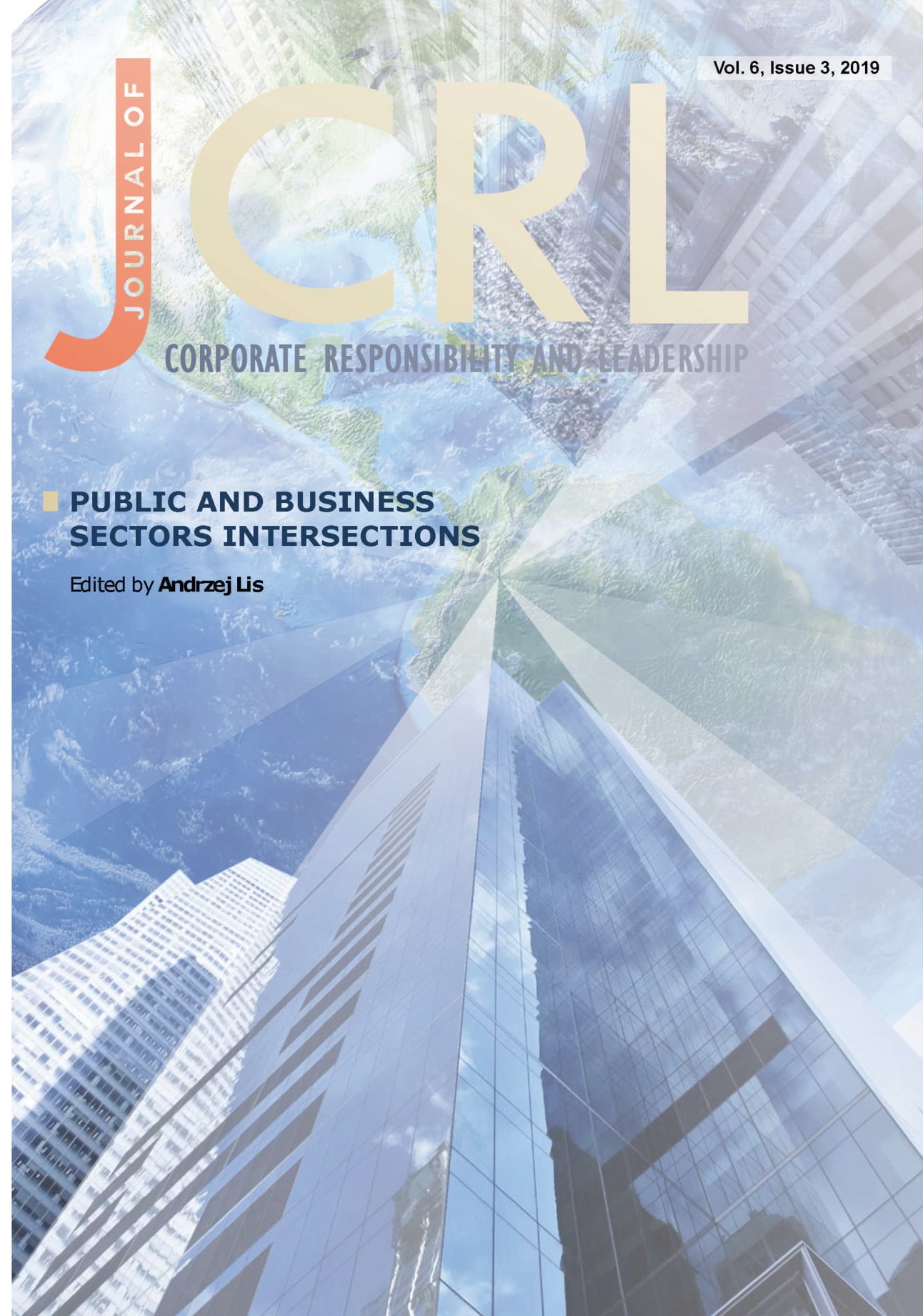Evaluation Criteria of the Applications for Public Funding and Their Role in Increasing Innovative Potential of Enterprises: The Case of the Opolskie Voivodeship Regional Operational Programme 2014–2020
DOI:
https://doi.org/10.12775/JCRL.2019.009Schlagworte
innovativeness, innovation management, innovative potential, regional operational programme, evaluation criteriaAbstract
The aim of the study is to assess the innovative potential of the selected companies in Opolskie Voivodeship through comparing and contrasting meeting by them criteria used for the evaluation of projects of the Opolskie Voivodeship Regional Operational Programme (RPO WO) 2014–2020. The study process is focused around the following research questions: (1) What criteria are used for evaluation of projects in the
Opolskie Voivodeship Regional Operational Programme (RPO WO) 2014–2020? (2) How has the innovation level of project outcomes i.e. products/ services/ technologies changed? (3) What is the level of cooperation with the R&D sector in the evaluated companies? (4) Are there any changes observed in regard to developing by companies their in-house R&D capabilities?
Literaturhinweise
Bębenek, P. (2015). Enterprise innovation management – integration of the process, product, marketing and organisation changes. In K. Malik, & Ł. Dymek (Eds.),
Effective Transfer of Knowledge from Science to Industry in the Opolskie Voivodeship: Requirements for an Effective Cooperation (pp. 165–175). Warszawa: Difin.
Bębenek, P. (2017). Effective innovation management in a company: Innovation assessment criteria. In Social Sciences & Arts Conference Proceedings, 4th International Multidisciplinary Scientific Conferences SGEM2017 (pp. 121–128), Bulgaria.
Cho, H. J., & Pucik, V. (2005). Relationship between innovativeness, quality, growth, profitability, and market value. Strategic Management Journal, 36, 555–575.
European Innovation Scoreboard (2016). Retrieved from https://op.europa.eu/en/publication-detail/-/publication/6e1bc53d-de12–11e6-ad7c-01aa75ed71a1European Innovation Scoreboard (2017). Retrieved from https://ec.europa.eu/docsroom/
documents/24829 European Innovation Scoreboard (2018). Retrieved from https://op.europa.eu/en/
publication-detail/-/publication/8e458033–74fc-11e8–9483–01aa75ed71a1/language-en/format-PDF/source-99539237
Hawrysz, L. (2016). Social aspects of CSR reporting in Polish banks listed on the Warsaw Stock Exchange. In Political Science, Law, Finance, Economics & Tourism,
Proceedings of the SGEM 2016, Albena, Bulgaria, 24–30 August 2016 (pp. 587–594).
Albena: STEF92 Technology Ltd. Hawrysz, L., & Maj, J. (2017). Identification of stakeholders of public interest
organisations. Sustainability, 9(9), art. 1609.
Hawrysz, L. (2017). Prospect of applying the concept of dynamic capabilities in public sector organisations. In Sustainable Economic Growth, Education Excellence,
and Innovation Management through Vision 2020, Proceedings of the 29th IBIMA Conference, Vienna, Austria, 3–4 May 2017 (pp. 2023–2033). Norristown:
International Business Information Management Association.
Innobarometer (2014). Lack of financial resources hinders the commercialization of innovations. Retrieved from https://ec.europa.eu/commission/presscorner/detail/en/
MEMO_14_384
Jakubiec, M., (2016). Działania innowacyjne czynnikiem rozwoju przedsiębiorstwa. Nauki o Zarządzaniu, 1, 63–76.
Knosala, R., Boratyńska-Sala, A., Jurczyk-Bunkowska, M., & Moczała, A. (2014), Zarządzanie innowacjami. Warszawa: PWE.
Kubiciel-Lodzińska, S., (2017). Employment of foreigners in Poland from the point of view of entrepreneurs – Opole Voivodeship study. In proceedings of the 5th International Conference Innovation, Management, Entrepreneurship and
Sustainability (pp. 482–495). Prague.
Kubiciel-Lodzińska, S., & Ruszczak, B., (2017). Non-salary employment conditions offered to foreigners legally employed in Poland (Study based on the Opole
Voivodeship data). Central and Eastern European Journal of Management and Economics, 5(1), 77–91.
Kubiciel-Lodzińska, S., & Maj, J. (2017). The tendency of entrepreneurs to employ foreigners: Labour immigrants in the opinion of employers. Central and Eastern European Migration Review, 6(2), 178–191.
Maj, J. (2015). Diversity management’s stakeholders and stakeholders management. In I. Popa, C. Dobrin, & C. Ciocoiu (Eds.), Proceedings of the 9th International
Management Conference, Management and Innovation for Competitive Advantage (pp. 780–793). Bucharest.
Malerba, F. (2005). Sectoral systems of innovation: A framework for linking innovation to the knowledge base, structure and dynamics of sectors. Economics of Innovation and New Technology, 14(1–2), 63–82.
OECD and Eurostat (2005). Oslo Manual: Guidelines for Collecting and Interpreting Innovation Data. Paris: Organisation for Economic Co-operation and Development, Statistical Office of the European Communities.
Pomykalski, A., (2013). Innowacyjność w rozwoju organizacji. Zeszyty Naukowe Politechniki Łódzkiej: Organizacja i Zarządzanie, 53, 5–15.
Statistics Canada (2006). Labour Force Survey. Ottawa: Statistics Canada.
Tidd, J., Bessant, J., & Pavitt, K. (2006). Managing Innovation: Integrating Technological, Market and Organizational Change. Chichester: Wiley.
Tidd, J., & Bessant, J. (2013). Zarządzanie innowacjami: Integracja zmian technologicznych,
rynkowych i organizacyjnych. Warszawa: Wolters Kluwer.
Downloads
Veröffentlicht
Zitationsvorschlag
Ausgabe
Rubrik
Stats
Number of views and downloads: 349
Number of citations: 0



